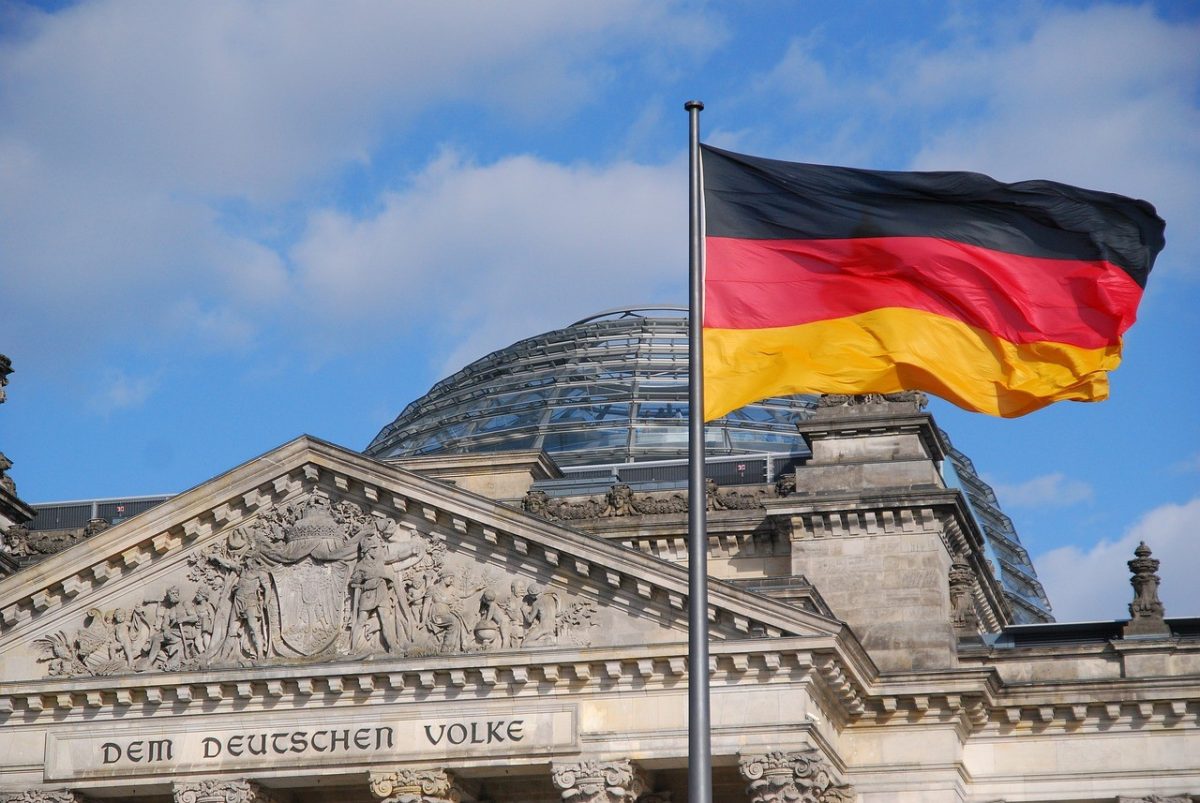The largest economic engine in Europe is sick. Is the German barometer for global economic stability in trouble? The Organization for Economic Co-Operation and Development (OECD) is reporting that economic growth in Europe is projected to hit 3.1 percent this year. Germany, with the largest economy in Europe, is falling behind other states and expected to end the year with only a 0.2 percent growth rate. In May the German Council of Economic Experts cut its forecasts. At the same time commercial bankruptcies in Germany hit a 10 year high. These factors could cement Germany’s position as the state with the lowest level of growth of all the OECD countries, according to Dr. Rainer Zitelmann, a German economist and author of more than 25 books, including “The Power of Capitalism.” Only 16 months ago, German Chancellor Olaf Scholz gave an interview in which he compared the German economy to that of the Post-WWII economic miracle. Today, that vision is challenged by many who view Berlin’s problems as continuing into 2025, with the European Commission now projecting a GDP increase in Germany of only 1.0%.
This week Scholz repeated his optimistic prediction to parliament despite the experts’ predictions for 2024 and 2025. “Because of big investments in climate protection, Germany will achieve growth rates for some time which we last saw in the 1950s and 1960s,” said Scholz. Although German stocks are doing well, denying its real economic position, compared to other European states, does not change the facts.
Germany is in the worst position for business since the end of the 1990’s. Previously, “Under the leadership of Social Democrat Gerhard Schröder, significant market economy reforms were implemented, the labor market was liberalized, and the top tax rate was reduced from 53 to 42 percent. These changes were the foundation for Germany’s economic success story in the last 20 years and Angela Merkel benefited from Schröder’s reforms,” according to a recent Associated Press story. That is not the case today.
Dawood Nazirizadeh, author of “Mastering the Art of German Business,” says there are four areas of particular challenge for Germany this year: the energy crisis and its ripple effects, digitalization and technological innovation, demographic shifts and the skilled labor market, and finally, the global economic climate and export dependencies.
With more than a decade and a half of rule without reform under former Chancellor Merkel, Germany’s energy industry moved closer to a planned economy under the pretext of fighting climate change. It shuttered its nuclear plant, banned fracking, and increased its importation of liquid natural gas (LNG) from the United States. German dependence on Russian gas increased as did energy prices. By 2025 projections for its “energy transition” are expected to exceed 1.2 trillion Euros (USD$1.3 trillion).
“For the Konrad Adenauer Foundation and the Austrian Federal Economic Chamber, it is clear that the EU economy needs more room to breathe. Otherwise, any further discussion of increasing the global competitiveness of the European Union will be reduced to absurdity,” says Matthias Kock, a senior policy advisor at the Austrian Federal Economic Chamber.
A report by the European Commission recently said that “the war in Ukraine and conflict in the Middle East represent significant risk factors for the global economy [including Germany]. In addition to the danger of energy prices rising again, the future direction of monetary and fiscal policy could be uncertain.”
“The energy shock caused by Russia’s invasion of Ukraine has led to the biggest collapse in German living standards since the second world war and a downturn in economic output comparable to the 2008 financial crisis” a stark assessment has found, according to Patrick Wintour writing in The Guardian. Two former economic advisers to the German government reinforced the report adding that wages in the country slumped further in 2022 than in any year since 1950.
Today the German populace is so worried about their economic future that only 20% think the government should do more to help Ukraine’s war effort. A RAND report analyzing the economic impact of the Russian invasion says that “In some ways, rebuilding Ukraine may be more financially difficult than conducting the war itself. The country has already suffered levels of damage not seen in Europe since World War II, and it took 20 to 30 years for Germany and the United Kingdom to rebuild after the war.”
German industrial policy counted on its large purchases of Russian energy to curb Moscow’s bad behavior. It appears to have failed and now Germany is paying the price for its “deindustrialization” policy. The rest of the world will also be impacted by German economic planning in the coming years.
The geopolitical risks to the energy and climate security of Germany have markedly increased since Russia’s invasion of Ukraine. A recent Friedrich Naumann Foundation report argues that “German businesses were one of the most vocal prophets of an impending geoeconomic Armageddon for Europe, disorienting and delaying EU and Germany’s strategic policy response. The decade-long delay in responding to Russia’s aggressive authoritarianism led to a painful tradeoff for Germany.” Today, that tradeoff has global implications for the world.
Daria Novak served in the U.S. State Dept.
